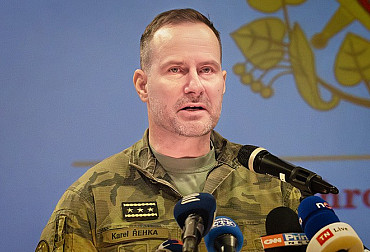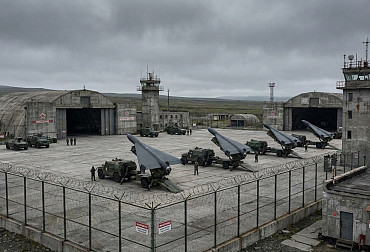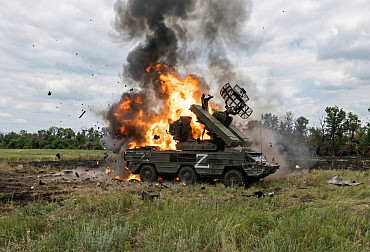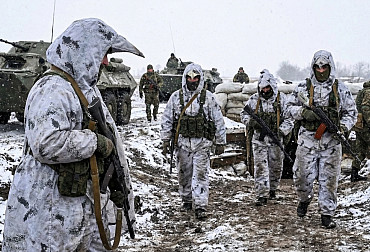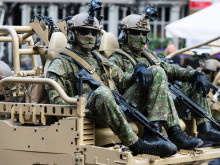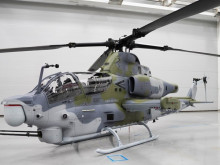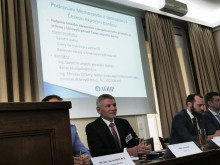Prague hosted a conference on new technologies for European defence
The Czech Presidency of the Council of the EU hosted an expert conference entitled "Importance of Modern Technologies for European Defence and Security" on Wednesday, under the auspices of the Ministry of Defence of the Czech Republic. A series of panel discussions offered a debate on possible joint acquisitions of EU countries, Emerging and Disruptive Technologies (EDTs) as a challenge and opportunity for European security and the search for possible joint defence initiatives between the European Union and the North Atlantic Alliance.
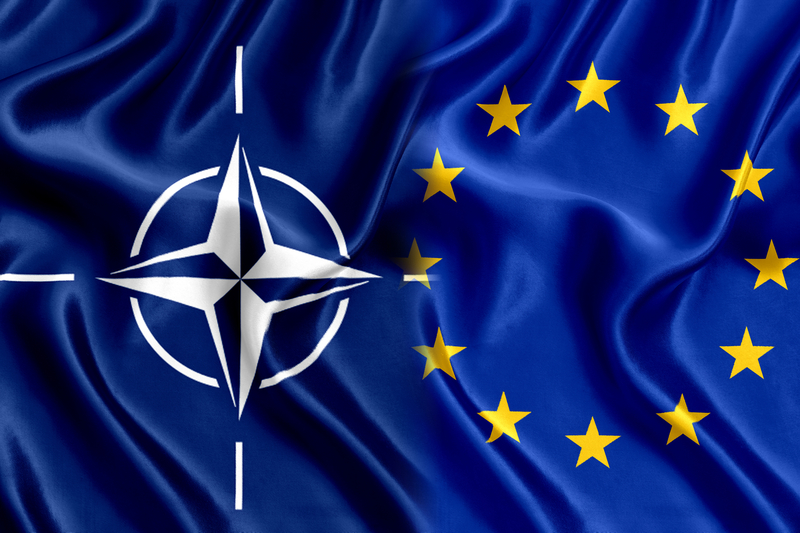 Picture: One of the main conclusions to emerge from the conference is to increase attention to the area of emerging and disruptive technologies and to strengthen cooperation between the EU and NATO (illustrative photo) | Shutterstock
Picture: One of the main conclusions to emerge from the conference is to increase attention to the area of emerging and disruptive technologies and to strengthen cooperation between the EU and NATO (illustrative photo) | Shutterstock
Among the speakers and guests of the conference were more than 80 representatives of companies and universities, entrepreneurs, managers and experts from the Czech Republic as well as from the North Atlantic Alliance, the European Defence Agency and other European organisations - e.g. Tomáš Kopečný, Deputy Assistant Secretary General for Emerging Security Challenges of NATO, James Appathurai and Jean-François Ripoche, Director for Research, Technology and Innovation of the European Defence Agency (EDA). It was said at the conference that if the West wants to maintain its technological superiority and stay one step ahead of all competitors, EU-NATO cooperation in terms of accelerating technological development must be as close and effective as possible. It is precisely this cooperation that strengthens the defence capability, technological independence and resilience of our countries and ensures the security of our citizens.
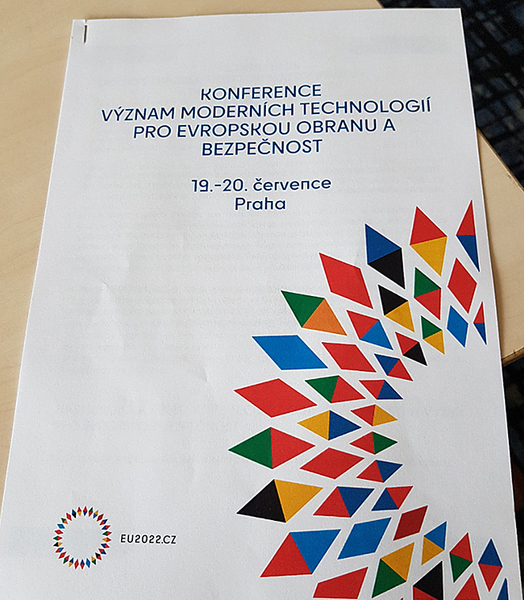
Picture: Prague hosts conference on new technologies for European defence | Jan Zilvar / CZ DEFENCE
It was also pointed out that the aggression of the Russian Federation in Ukraine has radically transformed the European security environment and it is therefore clear that the current threats cannot be countered without adequate capabilities and increased defence investments. The modernisation of our armies is therefore more important than ever. The war in Ukraine has also highlighted the need to accelerate defence acquisitions and the need to wean many Member States off their dependence on obsolete Soviet technology. The unprecedented unity in response to Russian aggression has reaffirmed that we are always stronger together. At the same time, however, it was mentioned that there are certain shortcomings of which we are aware with our partners and which we need to continue to work on.
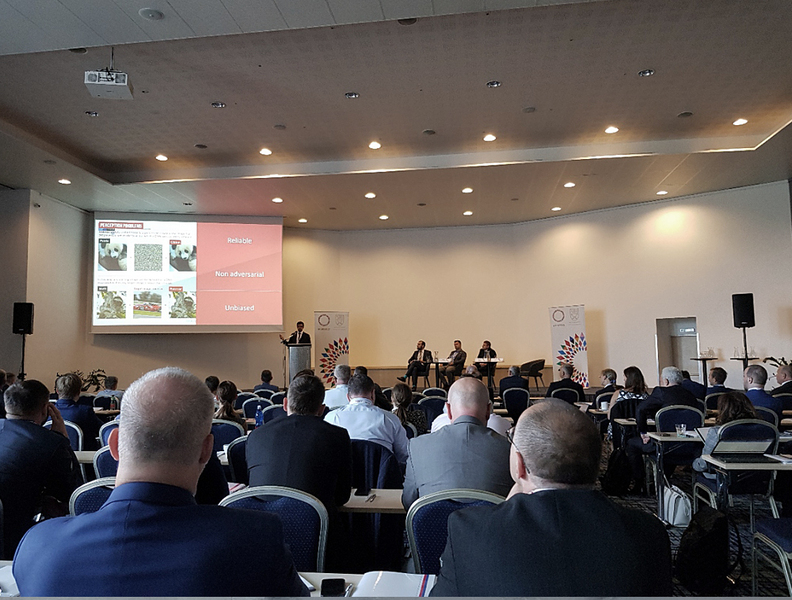 Picture: Prague hosts conference on new technologies for European defence | Jan Zilvar / CZ DEFENCE
Picture: Prague hosts conference on new technologies for European defence | Jan Zilvar / CZ DEFENCE
The defence investment gap analysis presented by the European Commission in May this year in the wake of the Russian invasion of Ukraine proposes measures to strengthen and streamline cooperation in the urgent resupply of essential military equipment. Contributing to the implementation of the recommendations and conclusions resulting from this analysis, especially in relation to the proposed regulations, is thus one of the important activities of the Czech Presidency. All EU activities in the area of defence and security should be coordinated with NATO so that they do not compete with each other, but complement each other. It is the Alliance whose principle of collective defence is the basis of our security. Moreover, 21 EU Member States are also NATO members, and the accession of two more Member States is undergoing the ratification process. The defence agenda of these two organisations is therefore very strongly interlinked. The aim is to ensure the greatest possible compatibility and interoperability of capabilities. One example of this is cross-border cooperation activity to support the further development of the defence and security industry.
Emerging and disruptive technologies (EDTs), which have the potential to significantly change defence and security requirements in the coming years, are of great importance. These include the military use of biotechnology, artificial intelligence, autonomy, quantum or space technology, or advanced data analysis methods, which make it possible to solve complex tasks very quickly to support strategic decision-making.
According to the speeches of individual experts, both the European Union and NATO are well aware that technological superiority is a strategic advantage and act accordingly. Both organisations have recently put forward several initiatives aimed at innovation in the defence sector in order to strengthen technological superiority and achieve or maintain the necessary levels of defence capabilities. Within the EU, the European Defence Fund (EDF) is currently a key instrument for joint research and capability development. An increase in the budget of this fund will now be discussed and a Centre for European Defence Innovation - HEDI - will be established within the European Defence Agency. The creation of HEDI is a clear signal that innovation is taken very seriously among Member States and that they are aware of the need to invest more in it. It is this centre that will help to develop the synergies needed to link existing innovation efforts or stimulate the launch of new ones. All this will lead to a more efficient European defence.
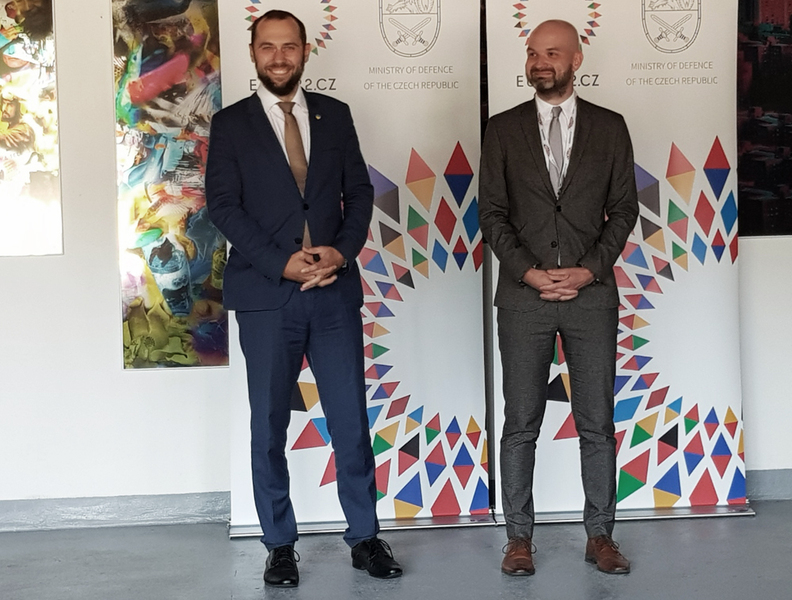 Picture: Tomáš Kopečný (left), Deputy for Management of the Industrial Cooperation Section of the MoD, and Filip Gantner, Deputy Deputy for Management of the Armaments and Acquisitions Section of the MoD | Jan Zilvar / CZ DEFENCE
Picture: Tomáš Kopečný (left), Deputy for Management of the Industrial Cooperation Section of the MoD, and Filip Gantner, Deputy Deputy for Management of the Armaments and Acquisitions Section of the MoD | Jan Zilvar / CZ DEFENCE
During the above mentioned press conference, we asked the Deputy for the Management of the Industrial Cooperation Section of the MoD, Tomáš Kopečný, the following 3 questions:
Who is ordering new technologies and means for the Czech Army? Is it the Army and based on its request the developers will develop new technologies, or is it the Ministry or is it some broader cooperation at the Alliance level?
It is a combination of all three entities. There are projects that are done collaboratively by several member states. There are shared projects for all the Alliance states. There are projects that are done just for the DoD components. And naturally, due to the existence and strengthening of the Cyber Command, this is also being addressed directly by the Czech Army.
Is there any lesson or inspiration from the war in Ukraine for the development of future new technologies in terms of solving future conflicts with modern technologies?
Clearly what we see in Ukraine is precision systems. These are different types of artillery, anti-tank guided missiles, recoilless means, whether for guidance or direct fire, destroying Russian heavy ground equipment at the same time. What keeps the Ukrainians on their toes in their positions is precisely the fact that they can aim better with the help of modern technology. These are modern technology means of intelligence, satellite and from low orbit space. Further, it is actually surprising how badly Russia is doing. That does not mean, however, that it will not draw experience for itself. It's simply about adaptation, about being very flexible and innovative right in the face of war.
How can space cooperation between NASA and Roskosmos continue to work in this context? Is such cooperation even possible at a time when we want to achieve new space-based military capabilities?
The fate of the International Space Station, which has only been in existence for 20 years, is, of course, very uncertain. What programmes are being run there, how information is being used for military purposes by one side or the other, how it is being used for propaganda purposes is, of course, incompatible at the moment. If only because the number of these orbiting objects and objects has increased in the last five years. It is therefore inevitable to know what and how it will be used for military purposes. Air traffic control is a fairly well established system around the world. Space traffic control is a big challenge in which we will logically compete somehow. How will that war escalate? We shall see. But in any case, I can't imagine any significant cooperation in such a sensitive area.











